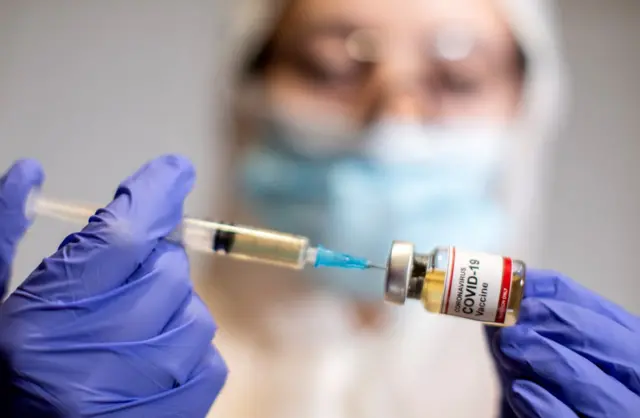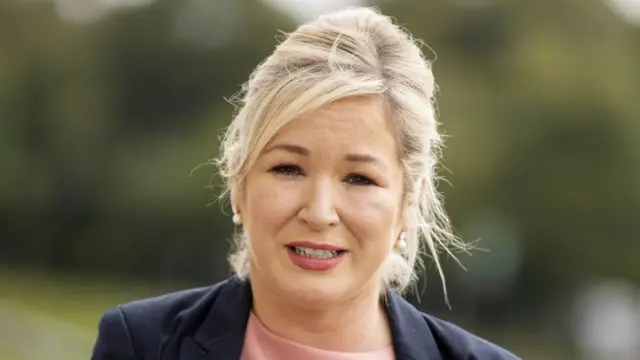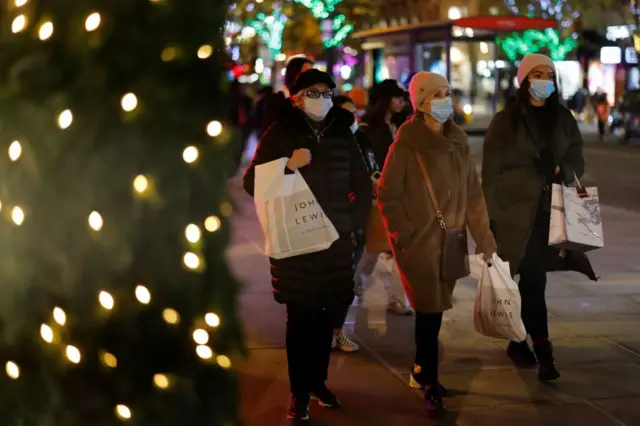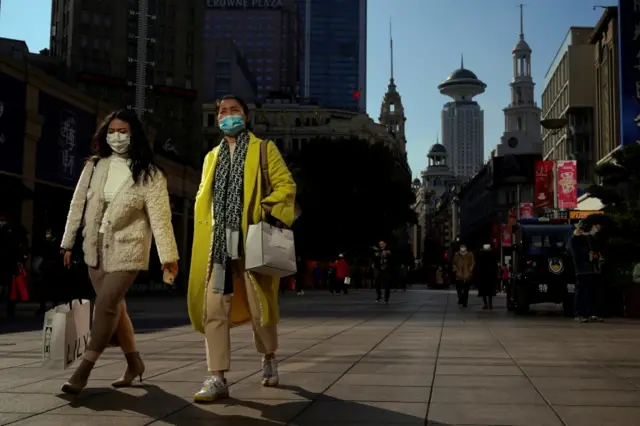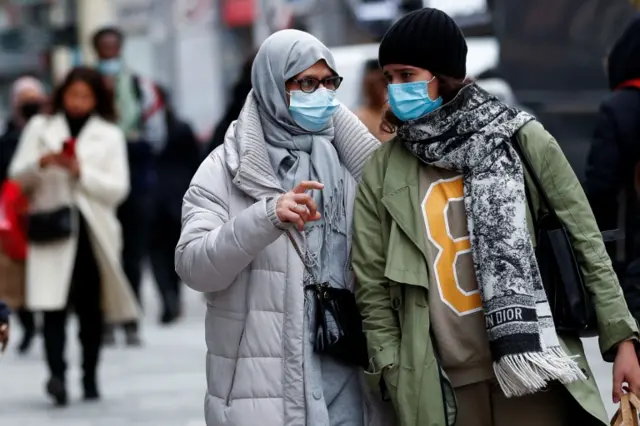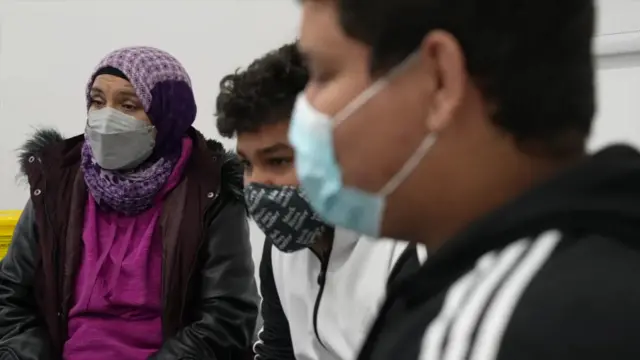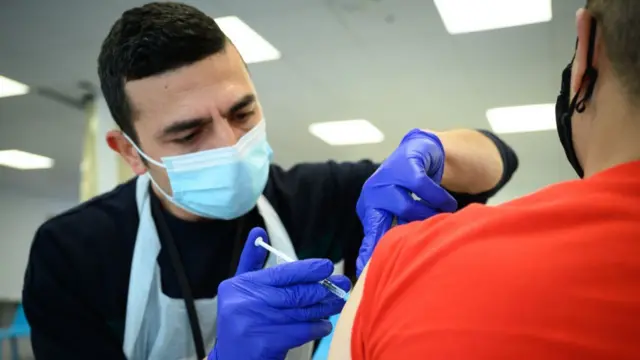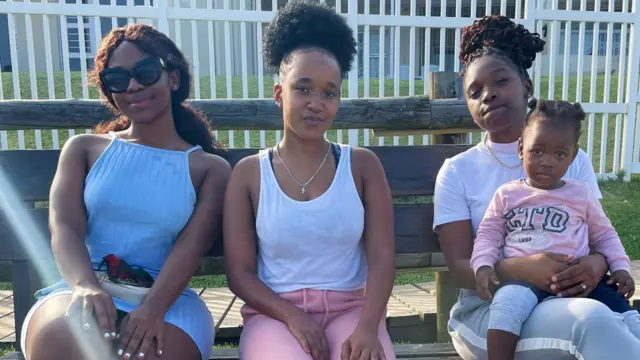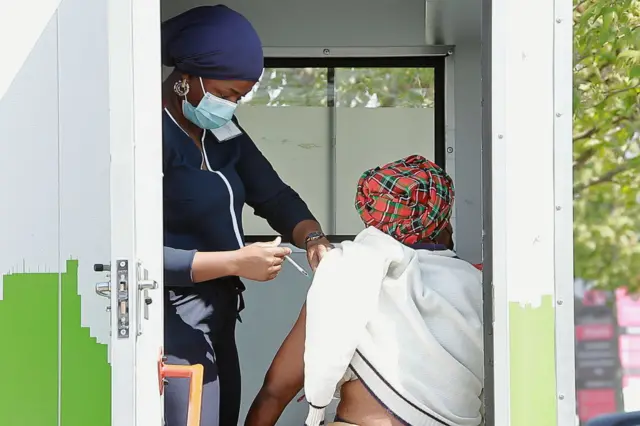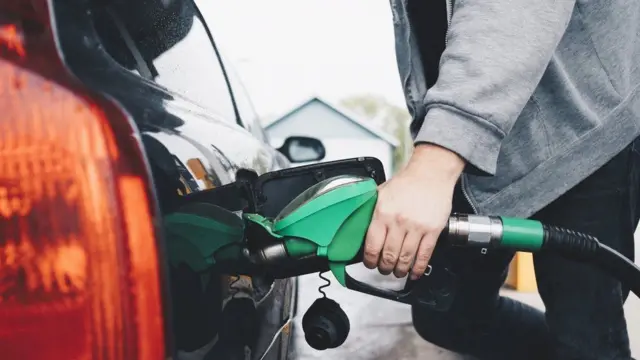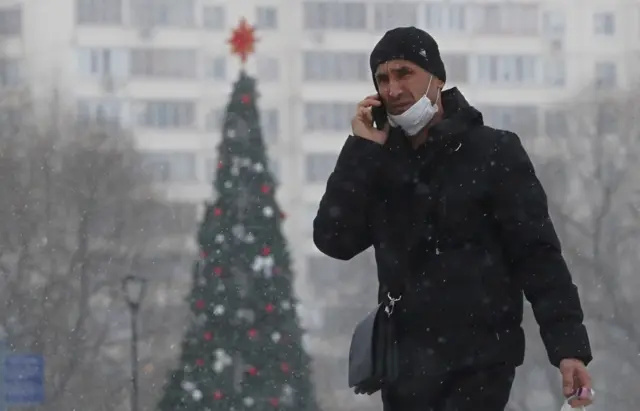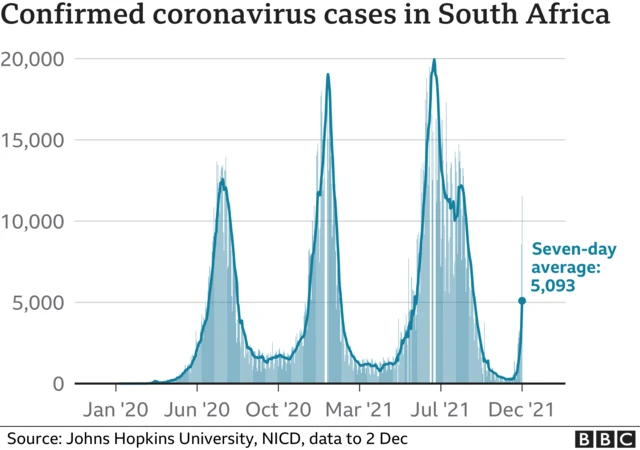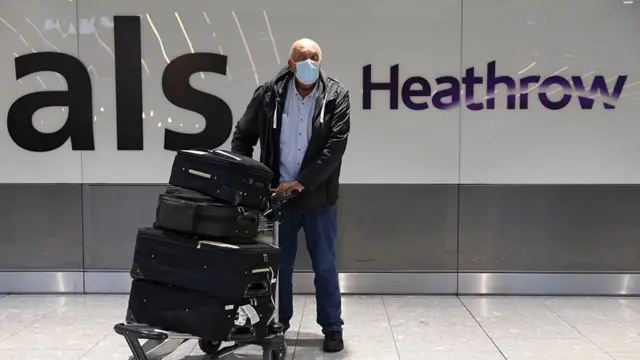That's all from us...published at 17:25 GMT 3 December 2021
We're pausing our live coverage of the pandemic now. Here's a reminder of the day's main developments:
- The first real-world data showing the new variant Omicron may evade some immunity has been reported by scientists in South Africa - but UK research suggests some promising signs that booster vaccines could help to fight it
- One in 60 people in the UK would test positive for Covid in the week ending 27 November, ONS estimates suggest - up slightly from the previous week
- The acceleration of delivering booster jabs will start no later than 13 December, NHS England says
- The first case of the Omicron Covid variant has been confirmed in Wales. In Scotland, 29 Omicron cases have been found - linked to several sources including a Steps concert at the Glasgow Hydro
- England has 22 confirmed cases as of 30 November
- Officials from the World Health Organization say detection of the new variant is “increasing daily” and its distribution is “likely already wider than currently reported”. They say all countries must prepare for potential new surges connected to Omicron
- An Italian man who wanted a Covid vaccination certificate without getting the jab turned up for his vaccine with a fake arm, officials say
Today's live page posts were written by Alexandra Fouche, Emma Harrison, Alex Kleiderman and Joseph Lee. The live page was edited by Holly Wallis and Lauren Turner. Thanks for joining us.
